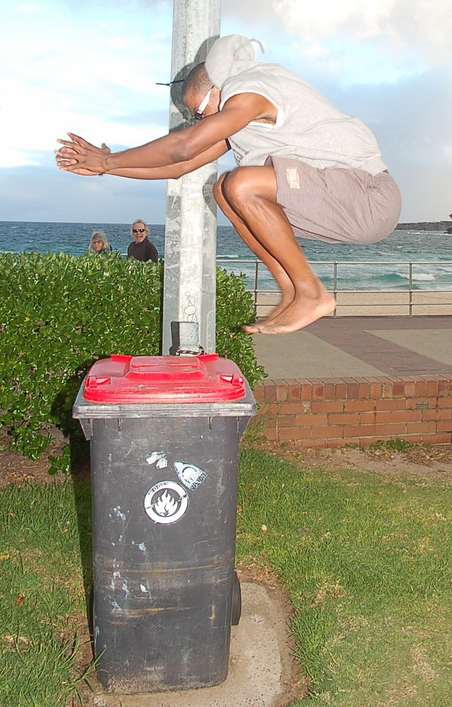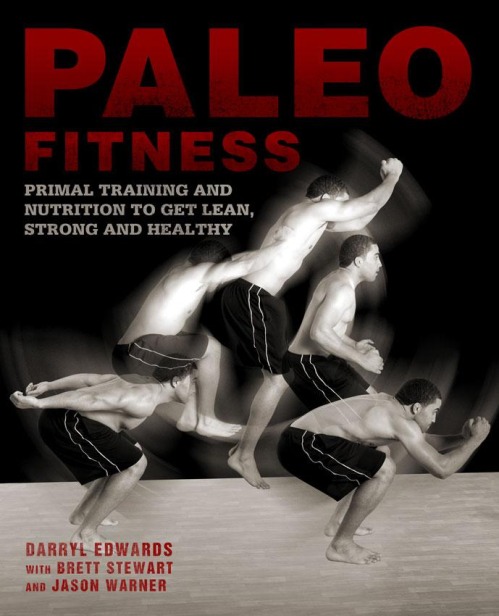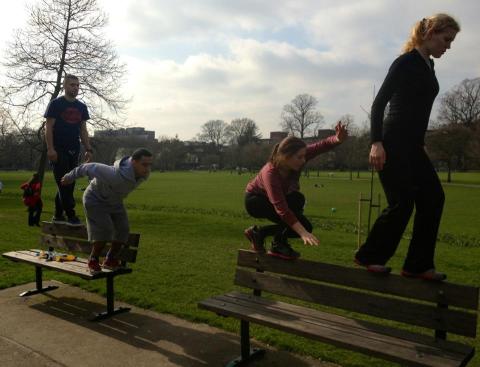Guest Post: Why Measure When You're Exploring Fitness?
 Monday, March 12, 2012 at 0:50 | by
Monday, March 12, 2012 at 0:50 | by  Darryl Edwards
Darryl Edwards This is the fourth in a series of guest posts by Susan Alexander.
Quick recap: The first, second, and third posts were about Mindset, Motion, and Mastery, the first three principles of the model I created to empower any change you want to make in your life - whether it's exploring fitness, learning to eat sensibly, remaking yourself in some way, or any other change.
 This post is about Measurement, the model's fourth principle. Measurement, in this context, means tracking what we're doing in the change process so we can know, in real time, whether our efforts are working. By "tracking," I mean assigning metrics to our efforts. As I'll show you, it's a mega-force that amps up the entire change process.
This post is about Measurement, the model's fourth principle. Measurement, in this context, means tracking what we're doing in the change process so we can know, in real time, whether our efforts are working. By "tracking," I mean assigning metrics to our efforts. As I'll show you, it's a mega-force that amps up the entire change process.
Evolutionary fitness is a great example of effective use of metrics. Its purpose is to improve fitness on an ongoing basis over time. It's also a learning process - an unending one. How do we know if we're improving and learning? We can estimate and guess, but we can't really know if these things are happening (and by how much) unless we track our progress.
If you read Darryl's blog, you probably know that his workouts are measured primarily in time, rounds, reps, and weight. These metrics align well with the general purpose of evolutionary fitness. This is just what we want - metrics aligned with purpose.
Keep in mind that with any self-chosen change, you'll need to be clear on why you're doing it, what you're trying to accomplish, and how you're going about it. Look to these 3 factors to determine your metrics. You can use standard ones, or you can be creative about it.
The top 3 reasons to use measurement
1) Perseverance. Well designed metrics give us relevant feedback on our efforts, which is a big contributor to what we all want: perseverance. When we have relevant feedback, and we're stretching ourselves reasonably and appropriately for our skill  level, the body and mind work in harmony with each other. What we're doing feels worth it for its own sake. We get into a state of full involvement known as flow, which is a likable feeling even when what we're doing is very difficult. It's what keeps us coming back to stretch ourselves more and continue improving.
level, the body and mind work in harmony with each other. What we're doing feels worth it for its own sake. We get into a state of full involvement known as flow, which is a likable feeling even when what we're doing is very difficult. It's what keeps us coming back to stretch ourselves more and continue improving.
2) Truth. We humans are intelligent, but we're also very biased. That's another way of saying that we have the cognitive power to find support for whatever we want to believe. In all areas of life (including fitness), we tend to make a lot of unfounded assumptions, come up with findings based on inadequate evidence, and draw conclusions based on too few observations. To reign ourselves in, we need metrics and numbers. They're the perfect antidote to vagueness and self-delusion. The famous words "what can be measured can be managed" tell us a lot. If we really want to manage ourselves and what we're doing, we'll avail ourselves of the benefits of measurement.
3) Accuracy. It's useful to view evolutionary fitness as a big experiment we're doing with ourselves. The workouts constantly change, as do the numbers assigned to the moves (time, rounds, reps, weight, etc.). It's simply not possible to remember what we've  done, how many, and the results. For clarity, learning, and comparison, the best course is to write everything down. Buy a journal and use it to play research scientist with yourself. Don't rely on erasable boards. Our memories aren't as good as we think they are. Keep writing and referring to what you've written. Great learning comes from this process. And it contributes to perseverance, by making our cumulative effort tangible and illuminating the areas where we need more of it.
done, how many, and the results. For clarity, learning, and comparison, the best course is to write everything down. Buy a journal and use it to play research scientist with yourself. Don't rely on erasable boards. Our memories aren't as good as we think they are. Keep writing and referring to what you've written. Great learning comes from this process. And it contributes to perseverance, by making our cumulative effort tangible and illuminating the areas where we need more of it.
The takeaway: There are about as many ways to measure as there are changes being made (and people making them). Be creative with your metrics, or use standard ones. What matters is that they align with your why, what, and how. Adding measurement to the change process amps up all components of it. It leads to perseverance and keeps us truthful and accurate. It also lends clarity and substance to what we're doing.
Over to you: Do you use measurement in fitness, or in anything else you do? If so, how does it help you? If you're not using measurement now, is it something you'll consider trying? Let's talk in the comments.
Susan Alexander blogs at gooddisruptivechange.com
You can follow her on Twitter at @SusanRPM4
NOTES & FURTHER READING
Mihalyi Cskikszentmihalyi, The Evolving Self at 31-33.
Daniel Kahneman, Thinking, Fast and Slow at 4.
Michael R. Canfield, Field Notes on Science & Nature at 260-74.
 RPM4 in
RPM4 in  Motivation,
Motivation,  Primal Fitness
Primal Fitness 




















